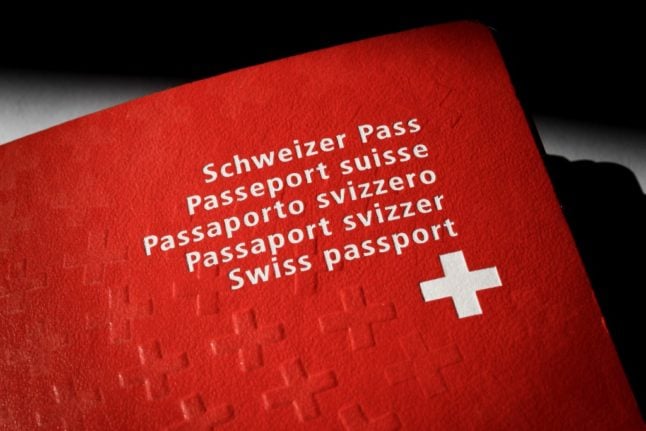Reader question: If I work in Switzerland, is it better to live in France?

Commuting to Switzerland for work while living in France can hold lots of advantages, but there are several aspects to consider. From wages and housing to healthcare and taxes, here's a look at what you should know.
For people who live in Geneva, as well as in certain parts of Vaud, Jura, Neuchâtel, and Basel, Switzerland’s border with France doesn’t really exist.
In other words, they can easily cross from one country to another, either to shop (from Switzerland to France) or to work (from France to Switzerland).
The border is there, but it doesn’t prevent cars (and sometimes bicycles and even pedestrians) from crossing hassle-free. Border checks are rare, and some posts are unguarded.
The same, by the way, holds true for crossings between Switzerland and Italy, Germany, and Italy; the border with Liechtenstein — a footbridge — is never manned.
So what happens when you live and work in Switzerland but consider moving to France to take advantage of an unbeatable combination of a high salary and lower cost of living?
It is true that a Swiss wage may afford you, from a purely financial point of view, a higher standard of living in France.
But before you make the move you should consider all the pros and cons that such a major change entails:
Citizenship
You can only move to France if you are a Swiss national, or a citizen of an EU / EFTA state.
If you live in Switzerland as a third-country national, then you must apply for a visa to live in France. A Swiss residence permit will not automatically give you a right to settle within the Schengen / EU.

You have to be Swiss to move to France. Photo by Fabrice COFFRINI / AFP
Wages
The median monthly net wage in Switzerland is 5,468 francs, while in France it is 2,287 euros (2,244 francs) after taxes.
In addition taxes are lower in Switzerland than in France (see below).
Housing
Property prices and rents are typically lower in France than in Switzerland, though housing in border regions —especially close to Geneva — is more expensive than farther away from the border.
READ MORE: How a cross-border train has pushed house prices up in Switzerland and France
Still, if you earn a decent Swiss wage, you may be able to get more bang for you housing buck in France.
What about consumer prices in general?
These are clear differences between the two countries, according to comparison sites:
- Consumer prices, including rent, are 40.6 percent lower in France than in Switzerland
- Rent is 53.6 percent lower in France than in Switzerland
- Groceries are 43.6 percent lower in France than in Switzerland
Keep in mind, however, that these are comparisons with general French prices; the difference between French and Swiss costs is as great in border regions.
Interestingly though, purchasing power in France is 26.5 percent lower than in Switzerland.
How can this be? This is related to a much lower inflation rate in Switzerland (3.4 percent) than in France (6.2 percent), as well as strength of the Swiss franc against the euro.

Shopping is cheaper in France. Photo by Axel Heimken / AFP
Taxes
This is one area, cost-wise, where Switzerland comes up on top.
The amount of tax you pay in Switzerland depends on which canton and even more specifically, which municipality you live in.
According to Moneyland consumer platform, which bases its information on the the OECD data, “the average income tax level for a Swiss resident earning an annual income of 85,536 francs is 10.7 percent. That is substantially less than in France, where income tax eats up 14.8 percent of the average French income.
Healthcare
France has a public healthcare system providing universal coverage for its residents. The system is financed through employee and employer contributions and taxes.
The majority of healthcare costs are covered by the state through the public assurance maladie system - but there are also 'top up' costs. For example a standard doctor's appointment costs €25 (price set by the government) and the public system refunds 70 percent of the cost. The remaining 30 percent is paid by the patient, or by their top-up insurance if they have it.
The top-up insurance (known as a mutuelle) is optional, the average cost for one person is 40 euro (39 francs) per month, but will rise depending on personal circumstances and age.
The Swiss system is totally different, as it is private and not nationalised, and costs much more in individual premiums – depending on the type of policy, age, co-pay amount, and canton of residence, the very basic plan costs between 250 and 400 francs a month.
So in terms of expense, the French healthcare insurance is much more affordable.
However, Switzerland offers the advantage of much shorter wait times for appointments with specialists and non-emergency procedures — the share of people in Switzerland waiting a month or more is 23 percent, while in France it is 36 percent (although French wait times do vary depending on location).
READ MORE: How is Swiss healthcare system different from the rest of Europe?
Work rules
It's also worth pointing out that there are some specific work rules for cross-border workers. For example, people who live in France but are employed by a Swiss company are limited in how many days they can work remotely or from home.
These rules were relaxed during the pandemic, but are now back in place and generally say that cross-border workers must be in their Swiss workplace for at least half the week.
What do people with a cross-border lifestyle say?
It is interesting to note the relationships between the French people who are employed in Switzerland — that is, the cross-border workers — and those are aren’t.
Swiss public broadcaster RTS reported earlier this week on how people working on both sides of the border felt about each other.
In a French village of Morteau, which lies just a few kilometres away from canton Neuchâtel, locals expressed some resentment toward those among them who go to work in Switzerland.
"Rents, real estate, food... everything is more expensive since we are in a border region," one resident told RTS.
Also, “being close to the border makes recruitment for local jobs difficult because we can’t match a Swiss salary".
A village resident who makes a daily 15-minute trek to work across the border in Switzerland is aware of the benefits of a Swiss job.
“It is a huge advantage to work in Switzerland and I know I must be humble vis-à-vis those who work and live in France,” he said.
And he brought up an interesting double-identity phenomenon: "I always feel like I'm Swiss in Switzerland and French in France.”
These comparisons could help you decide on which side of the Swiss-French border the grass is greener.
Comments
See Also
For people who live in Geneva, as well as in certain parts of Vaud, Jura, Neuchâtel, and Basel, Switzerland’s border with France doesn’t really exist.
In other words, they can easily cross from one country to another, either to shop (from Switzerland to France) or to work (from France to Switzerland).
The border is there, but it doesn’t prevent cars (and sometimes bicycles and even pedestrians) from crossing hassle-free. Border checks are rare, and some posts are unguarded.
The same, by the way, holds true for crossings between Switzerland and Italy, Germany, and Italy; the border with Liechtenstein — a footbridge — is never manned.
So what happens when you live and work in Switzerland but consider moving to France to take advantage of an unbeatable combination of a high salary and lower cost of living?
It is true that a Swiss wage may afford you, from a purely financial point of view, a higher standard of living in France.
But before you make the move you should consider all the pros and cons that such a major change entails:
Citizenship
You can only move to France if you are a Swiss national, or a citizen of an EU / EFTA state.
If you live in Switzerland as a third-country national, then you must apply for a visa to live in France. A Swiss residence permit will not automatically give you a right to settle within the Schengen / EU.

Wages
The median monthly net wage in Switzerland is 5,468 francs, while in France it is 2,287 euros (2,244 francs) after taxes.
In addition taxes are lower in Switzerland than in France (see below).
Housing
Property prices and rents are typically lower in France than in Switzerland, though housing in border regions —especially close to Geneva — is more expensive than farther away from the border.
READ MORE: How a cross-border train has pushed house prices up in Switzerland and France
Still, if you earn a decent Swiss wage, you may be able to get more bang for you housing buck in France.
What about consumer prices in general?
These are clear differences between the two countries, according to comparison sites:
- Consumer prices, including rent, are 40.6 percent lower in France than in Switzerland
- Rent is 53.6 percent lower in France than in Switzerland
- Groceries are 43.6 percent lower in France than in Switzerland
Keep in mind, however, that these are comparisons with general French prices; the difference between French and Swiss costs is as great in border regions.
Interestingly though, purchasing power in France is 26.5 percent lower than in Switzerland.
How can this be? This is related to a much lower inflation rate in Switzerland (3.4 percent) than in France (6.2 percent), as well as strength of the Swiss franc against the euro.

Shopping is cheaper in France. Photo by Axel Heimken / AFP
Taxes
This is one area, cost-wise, where Switzerland comes up on top.
The amount of tax you pay in Switzerland depends on which canton and even more specifically, which municipality you live in.
According to Moneyland consumer platform, which bases its information on the the OECD data, “the average income tax level for a Swiss resident earning an annual income of 85,536 francs is 10.7 percent. That is substantially less than in France, where income tax eats up 14.8 percent of the average French income.
Healthcare
France has a public healthcare system providing universal coverage for its residents. The system is financed through employee and employer contributions and taxes.
The majority of healthcare costs are covered by the state through the public assurance maladie system - but there are also 'top up' costs. For example a standard doctor's appointment costs €25 (price set by the government) and the public system refunds 70 percent of the cost. The remaining 30 percent is paid by the patient, or by their top-up insurance if they have it.
The top-up insurance (known as a mutuelle) is optional, the average cost for one person is 40 euro (39 francs) per month, but will rise depending on personal circumstances and age.
The Swiss system is totally different, as it is private and not nationalised, and costs much more in individual premiums – depending on the type of policy, age, co-pay amount, and canton of residence, the very basic plan costs between 250 and 400 francs a month.
So in terms of expense, the French healthcare insurance is much more affordable.
However, Switzerland offers the advantage of much shorter wait times for appointments with specialists and non-emergency procedures — the share of people in Switzerland waiting a month or more is 23 percent, while in France it is 36 percent (although French wait times do vary depending on location).
READ MORE: How is Swiss healthcare system different from the rest of Europe?
Work rules
It's also worth pointing out that there are some specific work rules for cross-border workers. For example, people who live in France but are employed by a Swiss company are limited in how many days they can work remotely or from home.
These rules were relaxed during the pandemic, but are now back in place and generally say that cross-border workers must be in their Swiss workplace for at least half the week.
What do people with a cross-border lifestyle say?
It is interesting to note the relationships between the French people who are employed in Switzerland — that is, the cross-border workers — and those are aren’t.
Swiss public broadcaster RTS reported earlier this week on how people working on both sides of the border felt about each other.
In a French village of Morteau, which lies just a few kilometres away from canton Neuchâtel, locals expressed some resentment toward those among them who go to work in Switzerland.
"Rents, real estate, food... everything is more expensive since we are in a border region," one resident told RTS.
Also, “being close to the border makes recruitment for local jobs difficult because we can’t match a Swiss salary".
A village resident who makes a daily 15-minute trek to work across the border in Switzerland is aware of the benefits of a Swiss job.
“It is a huge advantage to work in Switzerland and I know I must be humble vis-à-vis those who work and live in France,” he said.
And he brought up an interesting double-identity phenomenon: "I always feel like I'm Swiss in Switzerland and French in France.”
These comparisons could help you decide on which side of the Swiss-French border the grass is greener.
Join the conversation in our comments section below. Share your own views and experience and if you have a question or suggestion for our journalists then email us at [email protected].
Please keep comments civil, constructive and on topic – and make sure to read our terms of use before getting involved.
Please log in here to leave a comment.